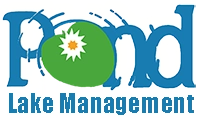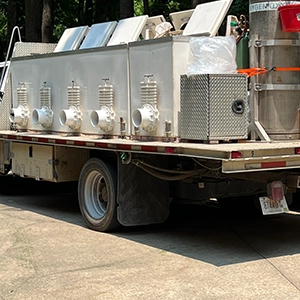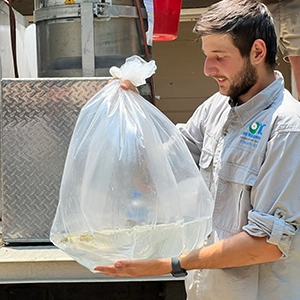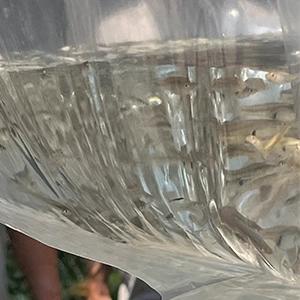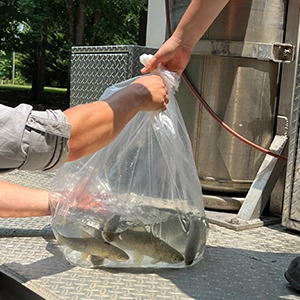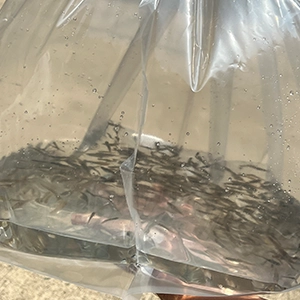Fish Pond Maintenance
The Green Carp and its role in Fish Pond Maintenance
Who is the Green Carp?
The Green Carp – also known as the Grass Carp – is a herbivorous, freshwater fish known for its large size. The Green Carp was cultivated in its native homelands as a food source. Originally native to eastern Asia, the Green Carp was introduced to the United States as a way to control aquatic vegetation. Its success at aquatic weed control helped it become the fish with the largest fish production in the world, to over five million tons per year.
Pond Lake Management can help you choose the right fish for your pond.
Green Carp grow rapidly and have been known to have a length of 24 to 40 inches. Their life span is usually 5-9 years with the oldest recorded age of 15 plus years. The Green Carp thrives in small inland lakes and backwaters that offer a generous food supply of freshwater vegetation
Fun Fact: An adult Green Carp will eat three times its body weight per day!
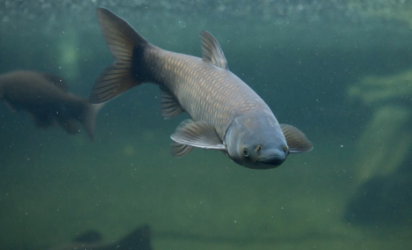
How does the Green Carp help with Pond Maintenance?
Green Carp can effectively control submerged weeds such as hydrilla, chara, elodea, widgeongrass, bladderwort, fanwort, coontail, pondweed (Potamogeton), and naiads. Grass carp are not a good choice to control the growth of duckweed, Eurasian watermilfoil, variable leaf milfoil, parrotfeather, and some types of algae. They are not usually considered a solution for these species. They are not effective in controlling watermeal, eelgrass, smartweed, American lotus, yellow waterlily, fragrant waterlily, maidencane, dollarweed, alligator weed, torpedograss, and cattails. For help with identifying aquatic vegetation, visit our Algae & Weed Identification Page.
Stocking of Green Carp in your Pond requires a stocking permit.
Can you stock a Farm Pond, Retention Pond or Lake with Green Carp?
Only Green Carp that have been genetically manipulated to make them unable to reproduce are allowed in the State of North Carolina.
A permit is required to stock grass carp in North Carolina. The receipt from a licensed triploid grass carp distributor can be used as the stocking permit if all four of these criteria are satisfied:
Your pond is less than 10 acres
It is solely owned by you or a single entity (for example, a neighborhood association)
No more than 150 grass carp will be stocked.
Your pond is self-contained (no direct connection to a stream or other water body)
If your pond does not meet all of these requirements you must apply for a permit from the NCWRC. For more information and a permit application, visit ncwildlife.org/ Stocking-Permits or contact your District Fisheries Biologist.
Additional Fish Pond Maintenance Service Resources:
North Carolina Fish Stocking Permits
North Carolina Wildlife Pond Management Guide
Fish Day Fish Stock supplied by Southland Fisheries
Fish Day
Pond Lake Management holds “Fish Day” events – usually once in the spring and again in the fall for Pond Owners to buy fish for their ponds. Provide your email below and we will contact when the next Fish Day is scheduled.
